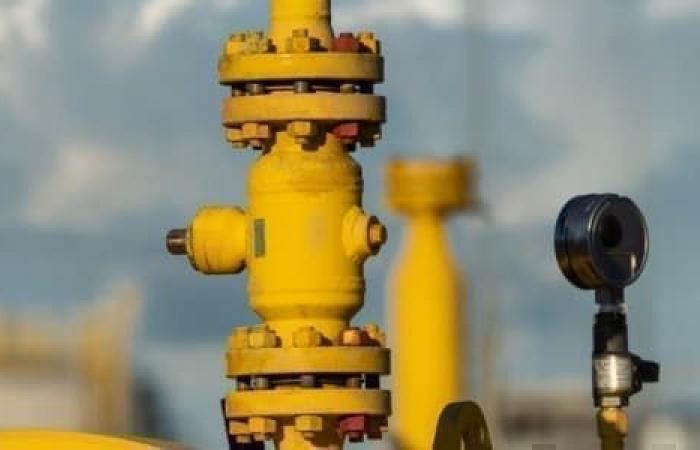
A realignment of natural gas supply agreements is gaining momentum across Eurasia. Russia, which has seen gas exports to Europe decline since the start of the Russia-Ukraine war, now intends to expand supplies to Central Asia. Meanwhile, Azerbaijan is making progress in replacing Russian gas to meet the needs of the European Union.
Russia’s unprovoked attack on Ukraine led EU states to reduce their dependence on Russian gas. Moscow’s exports to Europe fell from 155 billion cubic meters (bcm) in 2021, the year before the invasion, to just 43 bcm last year.
So far, EU members have offset the Russian decline through a combination of importing higher volumes of LNG by ship and increasing power generation from other energy sources. In addition, Brussels assured a agreement with Azerbaijan to double Azerbaijani gas exports to Europe to at least 20 bcm a year by 2027.
Azerbaijan’s export expansion plans finally appear to be bearing fruit, as Baku has recently signed agreements to transport gas from Turkmenistan to Europe, and concluded new agreements to expand connections with Central and South-Eastern European states.
Perhaps the most significant development is the decision by a Hungarian state entity, MVM, to acquire a 5 percent stake in Azerbaijan’s giant Shah Deniz gas field, a move announced during Baku energy week in early June. MVM already has two agreements to import Azeri gas.
Now, with a stake in Shah Deniz, MVM becomes the only shareholder that also purchases gas from the field, creating an important link between the producer and consumers. By increasing its dependence on Azerbaijani gas imports, Hungary is also signaling a distancing from Russia. Budapest has long relied on Russia as its main source of gas, as Viktor Orbán’s government has resisted imposing EU sanctions on the Kremlin.
Also significant is the agreement by which Azerbaijan reached a agreement with Albania to supply 200 million cubic meters (mcm) of gas per year starting in 2026. The gas will arrive through the Trans-Adriatic gas pipeline (TAP), which currently has a capacity of around 10 bcm/year but needs significant expansion to meet Baku’s growing export commitments to European states.
To date, the pipeline’s owners, which include Azerbaijan, have only committed to adding an additional 1.2 bcm of capacity annually, complaining that they cannot invest the huge sums required without obtaining prior commitments from European buyers of gas to acquire additional volumes. The amount to be supplied to Albania may be comparatively small, but it marks a step towards the full implementation of the TAP expansion plan.
Another initiative to facilitate deliveries of Azerbaijani gas, called the “Vertical Corridor,” is advancing at a faster pace than expected. The corridor involves the expansion of a network of gas pipelines in southeastern Europe, with Bulgaria serving as a hub connecting Greece, Moldova, Romania, Turkey and Ukraine.
On June 6, Bulgaria signed the first two construction contracts to expand its section of the planned corridor. Moves to expand other sections are expected to be made later this year and early next year.
Meanwhile, Russia is trying to make up for its lost market share in Europe by supplying gas to Central Asia. On June 7, at the St. Petersburg International Economic Forum, Russian state-controlled energy giant Gazprom signed new supply agreements with Kyrgyzstan and Kazakhstan, and held talks with Uzbekistan on future gas supply plans.
The agreement with Kyrgyzstan provides for Gazprom’s subsidiary, Gazprom Kyrgyzstan, to be supplied with Russian gas for 15 years, starting in 2025. Gazprom Kyrgyzstan, in turn, has signed agreements to supply gas to JSC Electrical Stations, the largest energy and heating supplier in Kyrgyzstan, and with Bishkekteploenergo, the municipal heating company of the Kyrgyz capital. Details of the contracts, including purchase volumes and prices, were not immediately disclosed.
To facilitate deliveries to Kyrgyzstan, Gazprom signed an agreement with its Kazakh subsidiary, NC Qazaqgaz, through which Gazprom will expand its existing gas pipeline network in Kazakhstan. The expansion would also accommodate increased gas exports to Uzbekistan, which was once a gas exporter but has now become a net importer. In 2023, Tashkent signed a two-year deal to import Russian gas with supplies starting last October.
Existing and future Russian gas exports to Uzbekistan were the subject of discussions on June 7 involving Gazprom CEO Alexei Miller, Uzbekistan Deputy Prime Minister Jamshid Khodjaev and Energy Minister Jurabek Mirzamakhmudov. With Uzbekistan’s gas demand on the rise, Russia’s supply deal is widely expected to be extended.
By David O’Byrne via Eurasianet.org
More Oilprice.com Top Reads:





